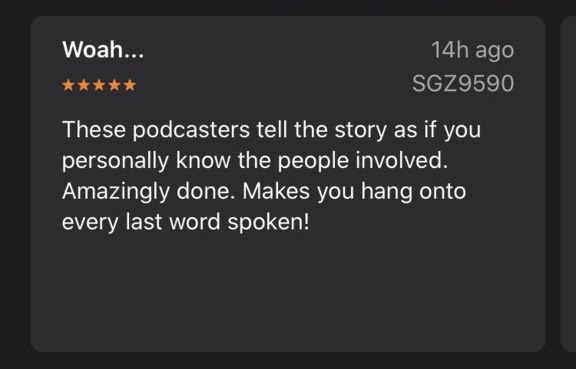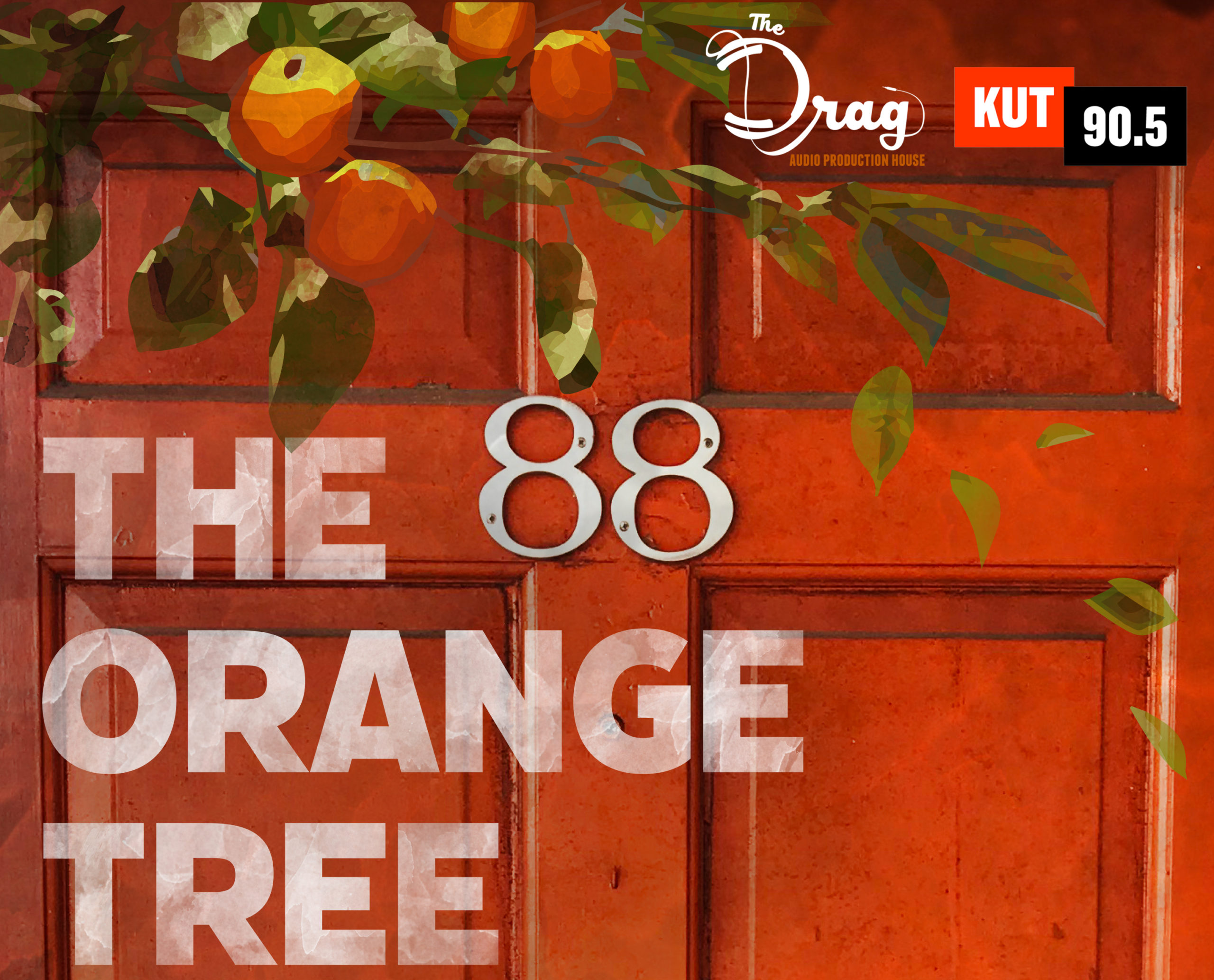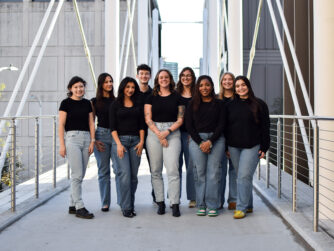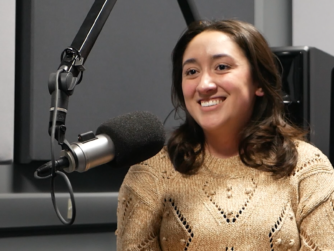When recent grads Haley Butler and Tinu Thomas started reporting for “The Orange Tree” podcast as seniors, they didn’t expect the story to transcend the University of Texas’ Forty Acres.
“Our starting point was to get students in the journalism school to even be interested in The Drag and consider joining eventually,” Thomas said. “We didn’t know the extent of how many people would listen to it or anything like that, but we just knew that it was bigger than the both of us and whatever plans we had after graduation.”
On July 14, the release day for the first two episodes, executive producer Robert Quigley used his usual cheery and optimistic personality in a message to Butler and Thomas. The two hosts were cynical about the podcast’s initial turnout because they didn’t know how the true crime community would react to it. They refused to look at its statistics for hours.
“It was like a rip-the-Bandaid-off type of thing,” Thomas said. “It’s like the moment you hover for a second before sending a tweet you’re nervous about, but then you end up sending it and then throwing your phone.

Now, as “The Orange Tree” continues to climb rankings on the international Apple Podcasts Top Charts list, there are certain reviews and feedback that stand out to the pair of podcasters. A major priority for Haley and Tinu has always been to leave an impact with their storytelling, and reviews that speak to this hold a special place in their hearts.
“Older women that have daughters like Jennifer that have let us know that they can see their daughters in Jennifer — that is really heartwarming, for me personally,” Butler said.
However, reviews that commended the pair on their production were delightful. Butler and Thomas were students when they started this podcast, and they say that much of the journey was a learning process filled with YouTube videos and self-tutorial sessions.
“I get a lot of messages about audio production, and those are so flattering because it’s like, ‘You think I could teach you something that I just learned myself?’” Thomas said. “That makes me very, very happy to hear and very happy to pass on, too, because I’m just really happy to see that people are taking an interest in this kind of production.”
Butler and Thomas characterized “The Orange Tree” by its unique storytelling method. Days before its release, Butler and Thomas were unsure of how the true-crime community would react to this non-traditional true crime podcast. Unlike traditional true crime, the two hosts don’t try to speculate in this podcast. Instead, they focus on the facts and telling the story of the life and death of Jennifer Cave.
Butler and Thomas focused on telling Jennifer Cave’s story with sensitivity. In addition to extensive research, they conducted in-depth interviews with sources that represented all aspects of the story. However, ever since starting the production process, Butler and Thomas felt the pressures of being student journalists.
“I had doubts about myself as a journalist because I was like, can I handle this? This is a lot of responsibility. Am I ready for this?” Butler said. “But the great thing about this story is that we knew it needed to be told and that it needed to be told in this way. And I think the impact of this is seeing that people want to hear these stories that are all-encompassing, that are humanizing, that talk about the victim. That’s unlike something you would see in an older ‘20/20’ or ‘48 Hours’ episode, so I think people are ready for that.”
“The Orange Tree” continues to prove its success amongst podcast listeners as it approaches the top 10 Apple podcasts in the U.S., but for Butler and Thomas, the real opinions will come from their sources, many of whom are waiting for all episodes to release before listening to the podcast.
“For so long this thing was just me, Haley, Quigley and our sources,” Thomas said. “In my heart, those are the opinions that matter the most to me, not even people I’m close to or my family. How these people feel about the content we put out together — because it is their voices and our voices — is what really matters.”









